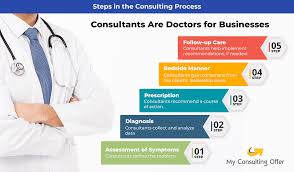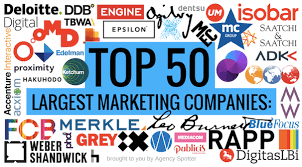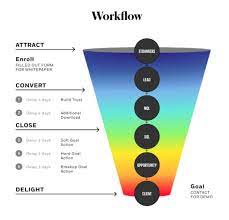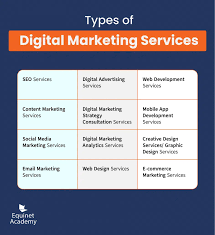Marketing Services: Boosting Your Business to New Heights
In today’s competitive business landscape, effective marketing is essential for success. Whether you’re a small startup or an established company, having the right marketing strategies and services in place can make all the difference in reaching your target audience and achieving your business goals. In this article, we will explore the importance of marketing services and how they can help propel your business to new heights.
Marketing services encompass a wide range of activities aimed at promoting and selling products or services. From market research and strategy development to advertising, branding, digital marketing, and public relations, these services work together to create a comprehensive approach that maximizes your business’s visibility and impact.
One of the key benefits of outsourcing marketing services is gaining access to a team of professionals with expertise in various areas. These experts understand the nuances of different marketing channels, consumer behavior, and industry trends. They can analyze market data, identify target audiences, and develop tailored strategies that resonate with potential customers.
A well-executed marketing strategy can significantly enhance brand awareness. By effectively communicating your unique selling points and value proposition through various channels such as social media, content marketing, email campaigns, and search engine optimization (SEO), you can capture the attention of your target audience and differentiate yourself from competitors.
Moreover, marketing services play a crucial role in lead generation. Through carefully crafted campaigns and tactics like pay-per-click (PPC) advertising or search engine marketing (SEM), you can attract qualified leads who are more likely to convert into customers. By nurturing these leads through strategic email automation or personalized content creation, you can build strong relationships that drive long-term customer loyalty.
In today’s digital age, having a strong online presence is vital for businesses of all sizes. Marketing services encompass digital strategies such as website design and development, social media management, online advertising campaigns across platforms like Google Ads or Facebook Ads Manager. These efforts ensure that your brand is visible to your target audience wherever they are online, increasing the chances of engagement and conversion.
Furthermore, marketing services can help you effectively manage your reputation. With the rise of online reviews and social media platforms, maintaining a positive brand image is crucial. Marketing professionals can monitor and respond to customer feedback and address any negative sentiment promptly. They can also develop public relations strategies that promote positive news about your business, enhancing your credibility and trustworthiness.
It’s important to note that marketing services are not a one-size-fits-all solution. Each business has unique needs and goals, requiring tailored strategies and approaches. When selecting a marketing service provider, consider their industry experience, track record of success, and their ability to understand your specific requirements.
In conclusion, marketing services play a pivotal role in driving business growth and success. By leveraging the expertise of professionals in various marketing disciplines, you can develop effective strategies that increase brand visibility, generate leads, nurture customer relationships, enhance online presence, and manage your reputation. Investing in marketing services is an investment in the future of your business – one that can propel it to new heights in today’s competitive market.
8 Pros of Marketing Services: Enhancing Your Brand, Relationships, Sales, and More
- Increased brand awareness – Marketing services can help to build your brand’s visibility and recognition in the market.
- Improved customer relationships – Through marketing services, you can create stronger relationships with existing and potential customers.
- Increased sales – Effective marketing strategies can increase sales and revenue for your business.
- Cost-effective solutions – You can choose from a wide range of cost-effective marketing solutions that are tailored to fit any budget.
- Targeted campaigns – With marketing services, you can target specific audiences or demographics with tailored campaigns that will reach them effectively.
- Enhanced customer experience – By providing customers with an improved user experience, you can increase customer loyalty and satisfaction levels over time.
- Access to new markets – Marketing services give businesses access to new markets they may not have been able to reach before, helping them expand their customer base and grow their business further afield.
- Flexibility – With the right marketing strategy in place, businesses have the flexibility to adjust their approach as needed in order to stay ahead of the competition or respond quickly to changes in the market landscape
Challenges of Marketing Services: Cost, Time, Lack of Expertise, and Risk of Failure
- Cost
- Time
- Lack of Expertise
- Risk of Failure
Increased brand awareness – Marketing services can help to build your brand’s visibility and recognition in the market.
Increased brand awareness is a significant advantage of utilizing marketing services. In today’s crowded marketplace, standing out from the competition is crucial for any business. Marketing services play a vital role in building your brand’s visibility and recognition, ensuring that your target audience becomes familiar with your products or services.
Through strategic marketing campaigns and activities, professionals in the field can effectively communicate your brand’s unique selling points and value proposition to the right audience. They utilize various channels such as social media, content marketing, advertising, and public relations to create a consistent and compelling brand message.
By consistently exposing your brand to potential customers through these channels, you increase the chances of capturing their attention and leaving a lasting impression. As consumers become more familiar with your brand, they are more likely to consider it when making purchasing decisions.
Brand awareness also contributes to building trust and credibility. When consumers recognize your brand and associate it with positive experiences or values, they develop a sense of trust in your offerings. This trust can lead to increased customer loyalty and advocacy.
Furthermore, increased brand awareness can attract new customers who may have never heard of your business before. As more people become aware of your brand’s presence in the market, they may be curious to learn more about what you offer. This curiosity can drive them to visit your website or physical store, explore your products or services, and potentially make a purchase.
In addition to attracting new customers, increased brand awareness can also benefit existing customers. By consistently reinforcing your brand message through marketing efforts, you remind current customers of the value you provide. This reminder can lead to repeat purchases and foster long-term customer loyalty.
Overall, marketing services play a crucial role in increasing brand awareness by effectively communicating your brand’s message across multiple channels. By building visibility and recognition in the market, you position yourself ahead of competitors and increase the likelihood of attracting new customers while nurturing relationships with existing ones. Investing in marketing services is an investment in the long-term success and growth of your brand.
Improved customer relationships – Through marketing services, you can create stronger relationships with existing and potential customers.
Improved Customer Relationships: Strengthening Connections Through Marketing Services
In today’s business landscape, building and maintaining strong relationships with customers is crucial for long-term success. Marketing services offer a powerful tool to enhance these connections, allowing businesses to create deeper and more meaningful relationships with both existing and potential customers. In this article, we will explore how marketing services can improve customer relationships and why it is essential for businesses to prioritize this aspect of their marketing strategies.
One of the primary benefits of marketing services is the ability to engage with customers on a more personal level. By understanding their needs, preferences, and pain points, businesses can tailor their messaging and offerings accordingly. Through targeted marketing campaigns, businesses can deliver relevant content that resonates with their audience, demonstrating that they understand their customers’ unique challenges and aspirations.
Marketing services also provide opportunities for businesses to actively listen to their customers. By leveraging social media platforms, online surveys, or customer feedback mechanisms, companies can gather valuable insights into what their customers want and need. This two-way communication helps build trust and shows customers that their opinions are valued. By incorporating customer feedback into product development or service enhancements, businesses can demonstrate a commitment to meeting customer expectations.
Moreover, marketing services enable businesses to stay top-of-mind with their customers through consistent communication. Whether through email newsletters, social media updates, or personalized offers, maintaining regular contact helps nurture the relationship over time. By providing valuable information or exclusive benefits to loyal customers through these channels, businesses can reinforce the bond and encourage repeat purchases.
Another advantage of marketing services is the ability to create personalized experiences for customers. Through data analysis and segmentation techniques, businesses can deliver tailored messages based on individual preferences or purchase history. This level of personalization makes customers feel valued as individuals rather than just another faceless consumer. It enhances the overall customer experience by offering relevant recommendations or customized promotions that align with their specific needs.
Furthermore, marketing services play a vital role in customer retention. By implementing loyalty programs, referral incentives, or exclusive customer events, businesses can reward their most loyal customers and foster a sense of belonging. These initiatives not only encourage repeat business but also create brand advocates who are more likely to recommend the business to others. Word-of-mouth recommendations from satisfied customers can be a powerful driver of new business growth.
In conclusion, marketing services offer businesses the opportunity to improve customer relationships and foster loyalty. By understanding customers’ needs, actively listening to their feedback, and delivering personalized experiences, businesses can create stronger connections that go beyond transactional interactions. Investing in marketing services that prioritize customer relationship management can yield significant long-term benefits, including increased customer satisfaction, higher retention rates, and positive word-of-mouth referrals. Ultimately, by placing a focus on building meaningful relationships with customers through marketing services, businesses can lay the foundation for sustainable growth and success.
Increased sales – Effective marketing strategies can increase sales and revenue for your business.
Increased Sales: The Power of Effective Marketing Strategies
In the dynamic world of business, driving sales and increasing revenue is a top priority for every company. This is where effective marketing strategies come into play, providing a powerful tool to boost your business’s sales potential. In this article, we will explore how marketing services can help increase sales and revenue, ultimately contributing to the growth and success of your business.
Marketing services offer a range of strategies and tactics aimed at reaching your target audience and convincing them to make a purchase. By understanding consumer behavior, market trends, and your unique selling points, marketing professionals can develop tailored approaches that resonate with potential customers.
One key advantage of effective marketing strategies is their ability to create brand awareness. By promoting your products or services through various channels such as advertising campaigns, content marketing, social media platforms, and search engine optimization (SEO), you can increase your brand’s visibility among your target audience. This heightened awareness not only drives more traffic to your business but also increases the likelihood of converting leads into paying customers.
Marketing services also play a crucial role in lead generation. Through targeted campaigns and tactics like email marketing, pay-per-click (PPC) advertising, or social media advertising, you can attract qualified leads who are genuinely interested in what you have to offer. These strategies allow you to reach potential customers at the right time with the right message, increasing the chances of converting them into loyal buyers.
Moreover, effective marketing strategies focus on building strong customer relationships. By implementing customer retention techniques like personalized email campaigns or loyalty programs, you can nurture existing customers and encourage repeat purchases. Repeat customers not only contribute significantly to overall sales but also serve as brand advocates who spread positive word-of-mouth recommendations.
In today’s digital age, online presence is paramount for businesses looking to increase sales. Marketing services encompass digital strategies such as website optimization, social media management, online advertising campaigns across various platforms like Google Ads or Facebook Ads Manager. These efforts ensure that your brand is visible to your target audience online, increasing the chances of engagement and conversion.
Additionally, marketing services can help you analyze and understand customer data. By utilizing tools and techniques like market research, analytics, and customer segmentation, you can gain valuable insights into consumer preferences, buying patterns, and trends. This knowledge allows you to tailor your marketing strategies even further, effectively targeting specific customer segments and maximizing sales potential.
In conclusion, effective marketing strategies have the power to significantly increase sales and revenue for your business. By creating brand awareness, generating qualified leads, nurturing customer relationships, enhancing online presence, and leveraging customer data insights, marketing services provide a comprehensive approach to driving sales growth. Investing in professional marketing services is an investment in the future success of your business – one that can lead to increased sales figures and contribute to overall business growth.
Cost-effective solutions – You can choose from a wide range of cost-effective marketing solutions that are tailored to fit any budget.
In the world of business, budget constraints are a common concern. However, this should not hinder your ability to effectively market your products or services. Marketing services offer a plethora of cost-effective solutions that can help you reach your target audience without breaking the bank.
One of the advantages of marketing services is their ability to tailor strategies to fit any budget. Whether you’re a small startup with limited resources or a larger company looking to optimize your marketing spend, there are options available for every financial situation. Marketing professionals understand the importance of maximizing return on investment (ROI) and will work closely with you to develop strategies that align with your budgetary constraints.
With the rise of digital marketing, cost-effective solutions have become even more accessible. Online advertising platforms provide flexible pricing models, such as pay-per-click (PPC), where you only pay when someone clicks on your ad. This ensures that you’re only spending money when there is genuine interest in your offering.
Social media platforms also offer cost-effective advertising options, allowing you to reach a targeted audience at a fraction of traditional advertising costs. With precise targeting capabilities, you can ensure that your message reaches those who are most likely to be interested in what you have to offer.
Furthermore, content marketing provides an affordable way to engage with your audience and build brand awareness. By creating valuable and relevant content through blog posts, videos, or podcasts, you can establish yourself as an industry expert and attract potential customers organically.
Marketing services also provide economies of scale through their expertise and industry connections. They have access to tools and resources that may be costly for individual businesses to acquire independently. This allows them to negotiate better rates for advertising space or secure partnerships that offer additional exposure at reduced costs.
Additionally, outsourcing your marketing efforts can save both time and money compared to hiring an in-house team. By partnering with a marketing service provider, you gain access to a team of professionals who specialize in various marketing disciplines. This eliminates the need for recruitment, training, and the associated expenses that come with building an internal marketing department.
In conclusion, marketing services offer cost-effective solutions that can be tailored to fit any budget. From digital advertising to content marketing and leveraging industry connections, these services provide businesses with affordable ways to reach their target audience and achieve their marketing goals. By working closely with marketing professionals, you can develop strategies that maximize your ROI and help your business thrive within your financial means. Don’t let budget constraints hold you back from effective marketing – explore the cost-effective solutions offered by marketing services and unlock new growth opportunities for your business.
Targeted campaigns – With marketing services, you can target specific audiences or demographics with tailored campaigns that will reach them effectively.
Targeted Campaigns: Reaching Your Audience Effectively with Marketing Services
In the vast ocean of consumers, finding your target audience can sometimes feel like searching for a needle in a haystack. That’s where marketing services come to the rescue, offering a powerful tool for businesses to reach specific audiences or demographics through targeted campaigns. In this article, we will explore how targeted campaigns provided by marketing services can help you effectively connect with your desired audience.
One of the key advantages of marketing services is the ability to tailor campaigns to reach specific groups of people who are most likely to be interested in your products or services. By understanding your target audience’s demographics, preferences, and behavior patterns, marketing professionals can develop strategies that resonate with them on a personal level.
With targeted campaigns, you can focus your efforts and resources on reaching the right people at the right time. Instead of casting a wide net and hoping for the best, marketing services enable you to narrow down your target audience based on factors such as age, gender, location, interests, or even purchasing history. This precision allows you to create messaging and content that speaks directly to their needs and desires.
By delivering tailored messages to your target audience through various channels like social media platforms, email marketing, or online advertising networks, you increase the chances of capturing their attention and engaging them in meaningful ways. The more relevant your campaign is to their specific interests or pain points, the more likely they are to respond positively and take action.
Moreover, targeted campaigns can also help you optimize your marketing budget by focusing resources on those who are most likely to convert into customers. Rather than wasting valuable time and money on reaching individuals who may have little interest in what you offer, marketing services allow you to allocate resources strategically towards those who have a higher probability of becoming loyal customers.
Additionally, targeted campaigns provide valuable insights into consumer behavior and preferences. Through data analytics tools and tracking mechanisms offered by marketing services providers, you can gain a deeper understanding of how your audience engages with your campaigns. This information can help you refine your strategies, optimize your messaging, and make data-driven decisions to further enhance the effectiveness of your marketing efforts.
In conclusion, targeted campaigns are a powerful pro of marketing services that enable businesses to connect with their desired audience effectively. By tailoring your campaigns to specific demographics or audiences, you can deliver personalized messages that resonate with their needs and preferences. This approach not only increases the likelihood of capturing their attention but also optimizes your marketing budget by focusing on those who are most likely to convert. With the valuable insights gained from targeted campaigns, you can continuously refine and improve your marketing strategies for long-term success in reaching and engaging your target audience.
Enhanced customer experience – By providing customers with an improved user experience, you can increase customer loyalty and satisfaction levels over time.
Enhanced Customer Experience: The Key to Building Customer Loyalty
In the fast-paced world of business, customer satisfaction is paramount. Providing customers with an exceptional experience can be a game-changer for any company. This is where marketing services come into play, as they can greatly enhance the customer experience and ultimately boost customer loyalty and satisfaction levels over time.
Marketing services focus on understanding the needs and preferences of your target audience. By conducting market research and analyzing consumer behavior, marketing professionals can gain valuable insights into what drives customer satisfaction. Armed with this knowledge, they can develop strategies to improve the user experience across various touchpoints.
One way marketing services enhance the customer experience is through personalized communication. By segmenting your audience based on demographics, interests, or buying patterns, marketing professionals can tailor their messaging to resonate with each individual or group. Personalized emails, targeted advertisements, and customized content all contribute to a more engaging and relevant experience for customers.
Another aspect of enhanced customer experience lies in user-friendly interfaces and intuitive website design. Marketing services can help optimize your website’s layout, navigation, and overall functionality to ensure a seamless user experience. By making it easy for customers to find information, make purchases, or interact with your brand online, you create a positive impression that fosters loyalty and encourages repeat business.
Moreover, marketing services can leverage technology to streamline processes and provide convenience for customers. For example, implementing chatbots or automated customer service systems can offer immediate assistance round-the-clock. This not only saves time for customers but also ensures consistent support throughout their journey with your brand.
By focusing on enhancing the customer experience through marketing services, businesses have the opportunity to build long-lasting relationships with their clientele. Satisfied customers are more likely to become loyal advocates who not only continue purchasing from your brand but also recommend it to others. This word-of-mouth promotion is invaluable in today’s interconnected world where opinions spread rapidly.
Furthermore, an improved customer experience can lead to increased customer retention rates. When customers feel valued and have a positive interaction with your brand, they are less likely to switch to a competitor. This loyalty gives your business stability and allows you to focus on growth and expansion rather than constantly acquiring new customers.
In conclusion, marketing services play a vital role in enhancing the customer experience. By understanding your target audience, personalizing communication, optimizing user interfaces, and leveraging technology, you can create a seamless and enjoyable journey for your customers. This ultimately leads to increased customer loyalty, satisfaction, and retention rates – all of which are essential for the long-term success of any business. Invest in marketing services today and unlock the power of an enhanced customer experience that sets you apart from the competition.
Access to new markets – Marketing services give businesses access to new markets they may not have been able to reach before, helping them expand their customer base and grow their business further afield.
Expanding Horizons: Accessing New Markets with Marketing Services
In the ever-evolving business landscape, reaching new markets is crucial for sustained growth and success. One of the significant advantages of marketing services is that they provide businesses with access to untapped markets, allowing them to expand their customer base and venture further afield. In this article, we will explore how marketing services can open doors to new markets and propel businesses towards greater opportunities.
Traditionally, businesses have faced limitations in reaching beyond their local or established markets. However, marketing services offer a gateway to unexplored territories by leveraging various strategies and techniques. These services employ market research to identify potential customers in different regions or demographics, enabling businesses to target their efforts effectively.
By understanding the unique characteristics of new markets, marketing professionals can tailor campaigns that resonate with the specific needs and preferences of these audiences. This targeted approach increases the chances of capturing the attention and interest of potential customers who may have previously been out of reach.
Digital marketing plays a vital role in accessing new markets. With the power of online platforms and tools, businesses can extend their reach globally without physical boundaries. Through search engine optimization (SEO), social media advertising, content localization, and other digital strategies, marketing services enable businesses to connect with potential customers in distant locations.
Additionally, marketing services can assist in overcoming language and cultural barriers when venturing into new markets. Skilled professionals understand the importance of adapting messaging and branding to suit local customs and languages. By crafting content that resonates with diverse audiences, businesses can establish meaningful connections and build trust within these new markets.
Expanding into new markets not only widens a business’s customer base but also diversifies its revenue streams. Relying solely on one market puts a business at risk if economic conditions change or competition intensifies locally. By tapping into new markets through effective marketing strategies, businesses can mitigate these risks by spreading their operations across multiple regions.
Moreover, accessing new markets can lead to increased brand recognition and reputation. As a business expands its reach, it gains exposure to a wider audience, increasing the likelihood of being recognized as a trusted and reputable brand. This enhanced brand image can further drive customer loyalty and attract new opportunities for partnerships or collaborations.
However, it’s important to note that entering new markets requires careful planning and execution. Marketing services provide businesses with the expertise needed to navigate the complexities of different markets, including understanding local regulations, competition analysis, and adapting marketing strategies accordingly.
In conclusion, marketing services offer businesses the invaluable advantage of accessing new markets. By leveraging targeted strategies and digital platforms, businesses can expand their customer base beyond traditional boundaries. This expansion not only opens doors to new revenue streams but also enhances brand recognition and reputation. With the guidance of marketing professionals who understand the intricacies of different markets, businesses can confidently venture into uncharted territories and unlock exciting growth opportunities.
Flexibility – With the right marketing strategy in place, businesses have the flexibility to adjust their approach as needed in order to stay ahead of the competition or respond quickly to changes in the market landscape
Flexibility: A Key Advantage of Marketing Services
In today’s dynamic business environment, the ability to adapt and respond quickly to changes is crucial for staying ahead of the competition. This is where marketing services offer a significant advantage – flexibility. With the right marketing strategy in place, businesses have the freedom to adjust their approach as needed, ensuring they remain agile and responsive in an ever-evolving market landscape.
One of the primary benefits of marketing services is the ability to tailor strategies and tactics based on real-time data and market insights. By continuously monitoring consumer behavior, industry trends, and competitor activities, businesses can identify opportunities or potential challenges that may arise. This valuable information allows them to make informed decisions and adjust their marketing efforts accordingly.
For example, if a new competitor enters the market or there is a sudden shift in consumer preferences, businesses with effective marketing services can swiftly modify their messaging or target audience to maintain their competitive edge. They can adapt their advertising campaigns, content strategies, or even product offerings to align with changing market demands.
Furthermore, with digital marketing channels such as social media and online advertising platforms, businesses can easily test different approaches and measure their effectiveness in real-time. This flexibility enables them to optimize their campaigns on the fly by adjusting targeting parameters or refining messaging based on immediate feedback and data analysis.
Another aspect of flexibility offered by marketing services is the ability to scale efforts up or down as required. For instance, during peak seasons or promotional periods, businesses can ramp up their advertising spend or launch targeted campaigns to maximize reach and engagement. Conversely, during quieter periods or when facing budget constraints, they can reduce spending while still maintaining a consistent brand presence through strategic content creation or organic social media activities.
Moreover, marketing services provide businesses with access to a diverse range of expertise across various disciplines such as SEO (Search Engine Optimization), PPC (Pay-Per-Click) advertising, content creation, graphic design, and more. This multidisciplinary approach ensures that businesses can tap into the right skills and knowledge needed to tackle specific challenges or explore new opportunities. They can assemble a team of experts who can collaborate and adapt strategies collectively, leveraging each individual’s strengths for maximum impact.
In conclusion, flexibility is a key advantage of marketing services. The ability to adjust marketing approaches swiftly in response to changing market conditions or emerging trends allows businesses to stay competitive and seize opportunities as they arise. With the right marketing strategy in place, businesses can navigate the ever-evolving business landscape with confidence, ensuring their brand remains relevant and adaptable. By embracing flexibility through effective marketing services, businesses position themselves for long-term success amidst the dynamic nature of today’s markets.
Cost
Cost: A Hurdle for Small Businesses in Availing Professional Marketing Services
Marketing services offer a multitude of benefits, but one significant challenge that businesses face is the cost associated with hiring professional marketers. While these services can provide a substantial return on investment, the expense involved may not always be feasible for smaller businesses or those operating on limited budgets.
Professional marketing services often come with a price tag that includes the expertise, experience, and resources of a dedicated team. These professionals possess in-depth knowledge of market trends, consumer behavior, and effective marketing strategies. However, their fees can be prohibitive for businesses that are just starting out or struggling to allocate funds to various aspects of their operations.
For small businesses or those with limited budgets, it becomes essential to strike a balance between investing in marketing services and managing overall expenses. While it may seem daunting at first, there are alternative approaches that can help mitigate the cost-related challenges.
One option is to consider hiring freelance marketers or consultants who offer specialized services on a project basis. This allows businesses to access specific expertise without committing to long-term contracts or high retainers. Freelancers often charge lower rates compared to established marketing agencies while still delivering quality work.
Another alternative is to focus on building an in-house marketing team gradually. By hiring individuals with diverse skill sets and providing them with relevant training and resources, businesses can develop their own marketing capabilities over time. Although this may require more effort initially, it can be a cost-effective solution in the long run.
Additionally, businesses can explore do-it-yourself (DIY) marketing strategies using affordable digital tools and platforms. With advancements in technology and online resources available at our fingertips, entrepreneurs can learn the basics of social media management, content creation, and search engine optimization (SEO) themselves. While this approach requires time and effort from business owners directly, it offers more control over costs.
It’s important for small businesses to assess their specific needs and budget constraints before making a decision about marketing services. Prioritizing marketing activities that align with business goals and target audience can help in allocating resources effectively. A well-defined marketing strategy, even on a smaller scale, can still yield positive results if executed thoughtfully.
In conclusion, the cost of professional marketing services can indeed be a challenge for smaller businesses or those with limited budgets. However, by exploring alternative options such as hiring freelancers, building an in-house team gradually, or adopting DIY strategies, businesses can still develop effective marketing approaches within their means. It’s crucial to strike a balance between cost considerations and the potential benefits that marketing services can bring to the growth and success of a business.
Time
Time: The Hidden Challenge of Marketing Services
In the fast-paced world of business, time is a precious commodity. While marketing services offer a plethora of benefits, it’s important to acknowledge that implementing a successful marketing strategy requires time, effort, and resources – something that many businesses may not have readily available.
Marketing services encompass a wide range of activities, from market research and strategy development to content creation and campaign management. Each aspect demands careful planning, execution, and monitoring. This inevitably places additional demands on businesses already juggling multiple responsibilities.
For small businesses or startups with limited staff and resources, dedicating time to marketing efforts can be particularly challenging. Owners and employees often find themselves wearing multiple hats, focusing on core operations while neglecting the crucial task of marketing. This can lead to missed opportunities for growth and limited brand visibility.
Even for larger companies with dedicated marketing teams, the sheer volume of tasks involved in executing a comprehensive marketing strategy can be overwhelming. From creating engaging content to managing social media accounts and analyzing data, each step requires attention to detail and continuous effort.
Moreover, the ever-evolving nature of the marketing landscape adds another layer of complexity. Staying up-to-date with emerging trends, new platforms, and changing consumer preferences requires ongoing education and adaptation. This continuous learning process demands time that many businesses struggle to allocate amidst their daily operations.
However, it’s important not to let these challenges deter you from pursuing effective marketing strategies. While time may be a constraint, there are solutions available that can help businesses overcome this hurdle.
Outsourcing your marketing services to professionals who specialize in these areas can provide significant relief. By partnering with an experienced agency or consultant who understands your industry and target audience, you can leverage their expertise while freeing up internal resources to focus on core business functions.
Another option is investing in automation tools or software platforms that streamline various aspects of your marketing efforts. These tools can help automate repetitive tasks such as social media scheduling, email marketing, and data analysis, saving valuable time and allowing your team to focus on higher-level strategic activities.
Additionally, prioritizing your marketing efforts and setting realistic goals can help manage time constraints effectively. By identifying key objectives and focusing on the most impactful marketing activities, you can make the most of the resources available to you.
In conclusion, while time constraints may pose a challenge when it comes to implementing marketing services, it’s important to recognize the value they bring to businesses. By acknowledging this con and exploring solutions such as outsourcing or automation tools, businesses can overcome the time hurdle and unlock the benefits of effective marketing strategies. Remember, investing time in marketing is an investment in the long-term success and growth of your business.
Lack of Expertise
Lack of Expertise: Maximizing Your Marketing Potential
In the fast-paced world of business, marketing plays a crucial role in driving growth and success. However, without the knowledge and expertise of a professional marketer, it can be challenging to get the most out of your marketing efforts. This lack of expertise can hinder your ability to effectively reach your target audience and achieve your business goals.
Marketing is a multifaceted discipline that requires a deep understanding of consumer behavior, market trends, and effective communication strategies. Without this expertise, you may find yourself struggling to navigate the ever-changing marketing landscape and missing out on valuable opportunities.
One common consequence of lacking marketing expertise is ineffective targeting. Understanding your target audience and tailoring your messaging to their specific needs and preferences is essential for successful marketing campaigns. Professional marketers have the skills to conduct thorough market research, analyze data, and identify key insights that inform targeted strategies. Without this expertise, you risk wasting resources on reaching the wrong audience or failing to engage with potential customers effectively.
Another area where lacking marketing expertise can be detrimental is in brand positioning and differentiation. A skilled marketer knows how to create a unique brand identity that sets you apart from competitors. They can develop compelling messaging that communicates your value proposition effectively. Without this expertise, you may struggle to establish a strong brand presence or fail to convey why customers should choose your products or services over others.
In today’s digital age, online visibility is crucial for businesses across industries. Professional marketers understand the intricacies of digital marketing channels such as search engine optimization (SEO), social media advertising, content creation, and email marketing. They know how to leverage these tools effectively to increase brand visibility and drive customer engagement. Without their expertise, you may find it challenging to navigate these platforms or miss out on opportunities for growth.
Moreover, lacking marketing expertise can lead to inefficient use of resources. Marketing campaigns require careful planning and execution to ensure optimal return on investment. Professionals can develop comprehensive strategies, allocate budgets effectively, and track key performance indicators to measure success. Without their expertise, you risk wasting time and money on ineffective tactics or missing out on opportunities for improvement.
Fortunately, there are solutions to address this con of marketing services. Partnering with a professional marketing agency or hiring an experienced marketer can provide the expertise needed to overcome these challenges. They can guide you through the complexities of marketing, tailor strategies to your business needs, and help you achieve your objectives.
In conclusion, lacking marketing expertise can pose a significant challenge when trying to maximize your marketing potential. Without the knowledge and skills of a professional marketer, it becomes difficult to effectively target your audience, differentiate your brand, utilize digital platforms optimally, and allocate resources efficiently. Recognizing this con is the first step towards seeking solutions that will enable you to leverage the power of marketing and drive your business towards success.
Risk of Failure
Risk of Failure: Navigating the Uncertainties of Marketing Services
In the dynamic world of marketing, there is an inherent risk of failure, even when you enlist the help of professionals. Despite their expertise and experience, there is always a possibility that your carefully crafted marketing strategy may not deliver the desired results. In this article, we will explore this con of marketing services and how businesses can navigate the uncertainties.
One of the primary reasons for the risk of failure is the ever-changing nature of consumer behavior and market trends. No matter how well-researched and meticulously planned your marketing strategy may be, external factors beyond your control can impact its effectiveness. Consumer preferences can shift, new competitors can emerge, or unforeseen events can disrupt the market landscape. These variables introduce an element of unpredictability that can challenge even the most well-executed marketing campaigns.
Another factor contributing to the risk of failure is the complexity of modern marketing channels. With numerous platforms available – from social media to search engines to email – reaching and engaging your target audience requires careful planning and execution across multiple channels simultaneously. It’s a delicate balancing act that demands constant monitoring and adjustment to ensure optimal results. However, even with professionals at hand, there is no guarantee that every campaign will resonate with your audience as intended.
Moreover, measuring return on investment (ROI) in marketing can be challenging. While metrics such as website traffic, social media engagement, or lead generation are valuable indicators, they do not always directly translate into tangible business outcomes like increased sales or revenue. It takes time to accurately assess whether a marketing strategy has been successful or not.
To navigate these uncertainties and mitigate the risk of failure in marketing services, businesses need to adopt several strategies:
- Set realistic expectations: Understand that no strategy is foolproof and be prepared for unexpected outcomes. Clearly define measurable goals and communicate them with your marketing service provider.
- Continuous monitoring and adaptation: Regularly evaluate the performance of your marketing campaigns and be prepared to make adjustments based on real-time data and insights. This agility allows you to respond promptly to changing market dynamics.
- Test and learn approach: Embrace a culture of experimentation and learning. Test different tactics, messages, and channels to identify what resonates best with your target audience. Use the insights gained from these experiments to refine your marketing strategy continuously.
- Collaborative partnership: Maintain open communication with your marketing service provider. Share feedback, insights, and business objectives to ensure alignment and maximize the chances of success.
- Diversify your strategies: Instead of relying solely on one marketing channel or tactic, diversify your efforts across multiple platforms. This approach spreads the risk and increases the likelihood of reaching different segments of your target audience.
While there is a risk that marketing strategies may not deliver the desired results, it is important not to be discouraged by setbacks. Every failure presents an opportunity for learning and growth. By adopting a proactive mindset, embracing flexibility, and leveraging the expertise of professionals in marketing services, businesses can navigate uncertainties effectively and increase their chances of achieving their desired outcomes in the ever-evolving world of marketing.












